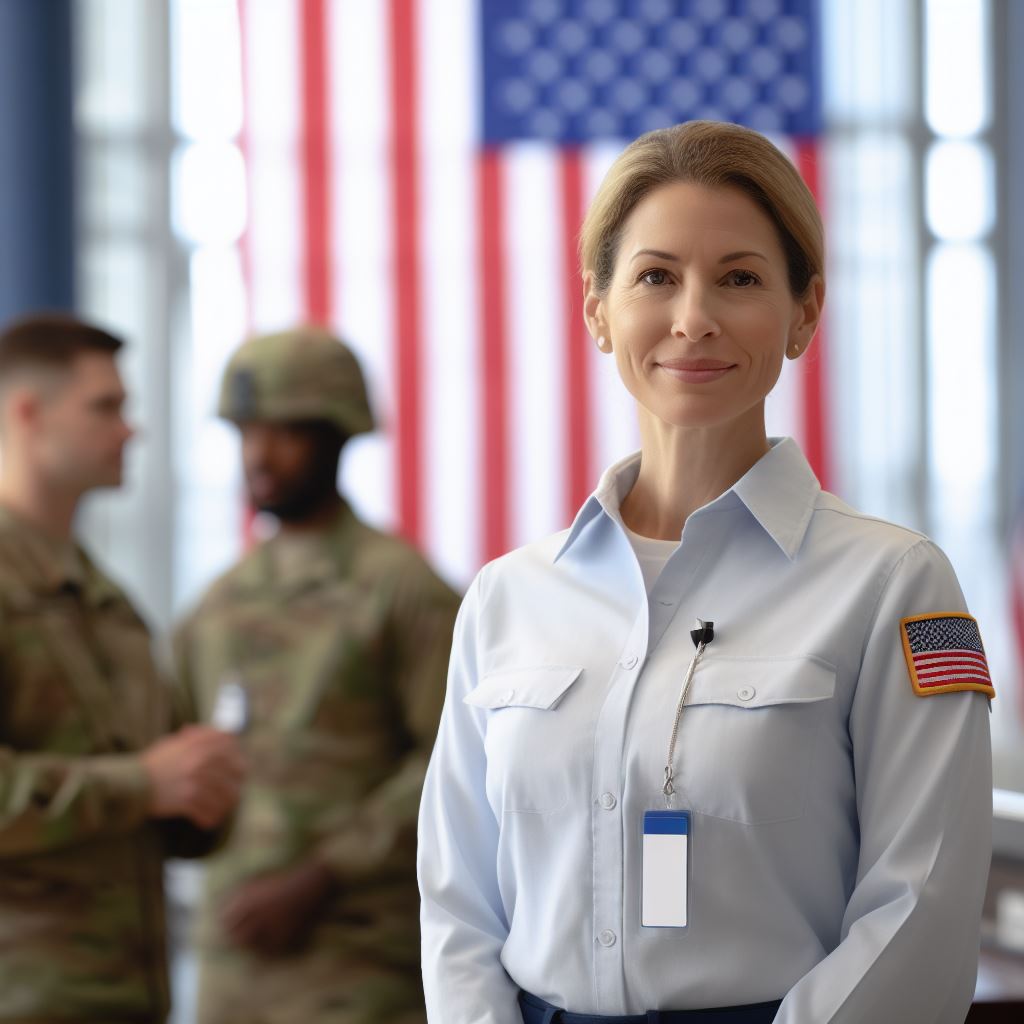Introduction
Embarking on the transition from military service to civilian life is a monumental undertaking for returning veterans adapting to civilian life
This section delves deep into the multifaceted landscape of adapting to a civilian environment, recognizing the inherent challenges and triumphs of this journey.
The blog post aims to underscore the critical need for robust support systems and guidance for veterans during this transformative phase.
As we navigate through the complexities, readers can expect to discover a comprehensive exploration of the factors influencing a veteran’s reintegration into civilian society.
Insights into available resources, community support, and proactive strategies form the core of our discussion, offering a holistic view of the adaptive process.
Join us as we unpack the nuances, share experiences, and provide valuable tools for veterans to navigate this significant life transition successfully.
This section serves as a beacon of support and information, fostering a sense of empowerment for returning veterans on their path to civilian life.
Read: Physical Fitness Standards and Tips for U.S. Security Guards
Challenges faced by returning veterans
Returning veterans often face a multitude of challenges as they transition back into civilian life.
These challenges can span across different aspects of their lives, from social and emotional well-being to career and employment opportunities.
Social and emotional challenges
Feeling disconnected from civilian society
Returning veterans may feel disconnected from the society they once protected. The experiences, values, and culture they encountered in the military may not align with those of civilian life.
This disconnection can cause feelings of isolation and difficulty in relating to others.
Difficulty building new relationships and support systems
Building new relationships and support systems can be challenging for returning veterans.
They may have formed strong bonds with their military colleagues, but finding similar connections in civilian life can be difficult.
Adjusting to new social circles and finding people who understand their experiences can take time.
Struggling with mental health issues such as PTSD
Many veterans struggle with mental health issues, with post-traumatic stress disorder (PTSD) being one of the most common conditions.
PTSD can result from exposure to traumatic events during service and can significantly impact day-to-day functioning. Coping with these mental health challenges requires specialized support and understanding.
Career and employment challenges
Translating military skills and experience to civilian job requirements
One significant challenge for returning veterans is translating their military skills and experience to fit civilian job requirements.
While veterans possess valuable skills, such as leadership, discipline, and problem-solving, they may struggle to articulate these in a way that aligns with civilian job descriptions.
Lack of familiarity with the civilian job market
Veterans may have limited knowledge of the civilian job market, its trends, and the necessary steps to secure employment.
They may require guidance and support to understand the job search process, create effective resumes, and navigate interviews successfully.
Potential discrimination or bias from employers
Returning veterans may face potential discrimination or bias from employers based on their military background.
Some employers might hold misconceptions or stereotypes about veterans, making it challenging for them to secure employment.
Veterans may need resources and assistance to combat these biases and highlight their unique strengths during the hiring process.
Generally, returning veterans experience various challenges as they adapt to civilian life.
Social and emotional challenges can arise due to feeling disconnected, difficulty building new relationships, and coping with mental health issues such as PTSD.
Additionally, career and employment challenges can be present due to translating military skills, lack of familiarity with the civilian job market, and potential discrimination or bias from employers.
Support systems, resources, and understanding are crucial in helping veterans overcome these challenges and successfully reintegrate into civilian society.
Read: Networking Opportunities for Security Professionals in the USA
Tips for adapting to civilian life
Seeking social support
Transitioning from military life to civilian life can be challenging, but with the right strategies, returning veterans can adapt and thrive.
One important aspect of this process is seeking social support. It is crucial to connect with other veterans who can relate to your experiences and provide a support system.
This can be achieved by connecting with veterans through various channels, such as support groups, organizations, and online forums.
Seeking professional help
In addition to seeking social support, it is essential to consider seeking professional help.
Accessing mental health services and counseling can assist in addressing any emotional or psychological issues that may arise during the transition.
There are therapy options available specifically tailored to veterans, such as cognitive behavioral therapy (CBT) or group therapy.
The Department of Veterans Affairs (VA) also provides valuable resources and support for veterans, including counseling services and guidance.
Building a civilian network
Building a civilian network is another crucial aspect of adapting to civilian life. By participating in community activities and events, veterans can meet new people and engage in social interactions.
Engaging with local organizations and clubs that align with their interests and hobbies further helps in expanding their network.
Volunteering is an excellent way to not only increase social connections but also give back to the community.
Understanding civilian job market
Understanding the civilian job market is essential for veterans transitioning to civilian life. Researching different industries and career paths provides insights into available opportunities.
Updating and tailoring resumes to match the requirements of civilian jobs is crucial to increase chances of landing a job.
Exploring vocational training and education opportunities can also be beneficial in enhancing skills and qualifications for civilian jobs.
Overall, transitioning to civilian life requires proactive steps and a willingness to seek support and adapt.
Veterans successfully navigate challenges, adapt to civilian life by seeking social support, accessing professional help, building a network, and understanding the job market.
Read: Impact of COVID-19 on Security Guard Services in the United States

Discover More: Women in Detective Roles: Breaking Barriers in the US
Resources available for returning veterans
Department of Veterans Affairs (VA)
Returning veterans have access to various resources and support systems aimed at facilitating their transition into civilian life.
Understanding and utilizing these resources is crucial in ensuring a successful adaptation. This section highlights some of the key resources available to returning veterans.
Department of Veterans Affairs (VA)
The Department of Veterans Affairs (VA) plays a vital role in providing comprehensive services and assistance to veterans.
The VA offers a range of programs tailored to address veterans’ healthcare, mental health support, and vocational training needs.
Veterans can benefit from these services to navigate the challenges they may encounter during their transition from military to civilian life.
Transform Your Career Today
Unlock a personalized career strategy that drives real results. Get tailored advice and a roadmap designed just for you.
Start NowVA services include access to healthcare facilities, ensuring that veterans receive necessary medical care and treatment.
Additionally, the VA provides mental health support, offering counseling and therapy services to help veterans cope with any psychological challenges they may face.
It is essential for returning veterans to be aware of these services and utilize them to prioritize their well-being.
Moreover, the VA offers vocational training programs to help veterans acquire new skills or enhance existing ones.
These programs aim to facilitate veterans’ successful reintegration into the civilian workforce by providing them with the necessary training and resources.
Returning veterans should explore these opportunities to expand their employment prospects and pursue fulfilling careers in civilian life.
Nonprofit organizations and charities
Various nonprofit organizations and charities are dedicated to supporting the reintegration of veterans into civilian life.
These organizations offer a range of services, including counseling, mentorship, and career transition support.
Their programs are designed to address the unique challenges veterans may face during their transition and provide them with the necessary guidance and assistance.
Returning veterans should seek out these organizations to access counseling services that can help them navigate any personal or emotional difficulties they may encounter.
Additionally, mentorship programs can connect veterans with experienced individuals who can provide guidance and support throughout their transition process.
Specific nonprofits focus exclusively on aiding veterans in their reintegration journey.
These organizations provide a wide array of resources, such as educational opportunities, job placement assistance, and community support networks.
By partnering with these nonprofits, returning veterans can receive specialized support tailored to their unique needs and circumstances.
Government programs and initiatives
The government recognizes the importance of supporting veterans during their transition into civilian life and has implemented various programs and initiatives to assist them.
Federal programs address essential areas such as employment, housing, and education, providing returning veterans with valuable resources and support.
Federal employment programs aim to increase job opportunities for veterans and facilitate their successful entry into the workforce.
These programs may include job placement assistance, skills training, and preferential hiring practices to give veterans a competitive edge in the job market.
Housing initiatives provide veterans with affordable housing options and assistance programs to ensure they have safe and stable living arrangements.
These programs aim to alleviate housing-related challenges that veterans may encounter during their transition.
The government also recognizes the importance of education in veterans’ successful reintegration.
Federal education programs offer financial assistance, such as the GI Bill, to help veterans pursue higher education or vocational training.
These programs enable veterans to acquire new skills and credentials that can enhance their career prospects in civilian life.
In addition to federal programs, state and local governments often implement their own initiatives to provide further support for returning veterans.
These initiatives may include specific resources and programs tailored to the needs of local veteran populations.
It is important for veterans to research and engage with these localized initiatives to access additional support in their transition process.
Overall, returning veterans have a wide range of resources available to aid their adaptation to civilian life.
Veterans achieve successful post-military transitions by utilizing resources from the Department of Veterans Affairs, nonprofit organizations, and government programs.
Read: A Day in the Life of a U.S. Army Soldier: Real Stories
Uncover the Details: Addressing Common Myths About Security Guard Jobs in the USA
Conclusion
Adapting to civilian life is crucial for returning veterans. It is a challenging transition that requires patience and effort.
Throughout this blog post, we have discussed several important points to help veterans adjust to their new reality.
We emphasized the significance of seeking support from family, friends, and professional networks.
Additionally, we highlighted the benefits of setting realistic expectations, managing stress, and establishing a routine.
These strategies can greatly contribute to a smoother transition and a positive civilian life experience.
It is vital to acknowledge that the journey may not be easy, but by utilizing the various resources and tips provided, veterans can navigate this process more successfully.
We cannot emphasize enough the importance of adapting to civilian life.
It not only enhances the well-being and overall quality of life for veterans, but it also positively impacts their relationships and future opportunities.
To further explore these topics, we encourage readers to connect with various veteran organizations, seek professional guidance, and engage in peer support groups.
These individuals and resources are invaluable in providing assistance and guidance throughout the transition process.
Lastly, we would like to express our sincere support and gratitude for the service of all veterans. Their sacrifice and dedication to our country deserve recognition and appreciation.
We hope this blog post has been helpful in providing guidance and support as they embark on their civilian life journey.
Transform Your Career Today
Unlock a personalized career strategy that drives real results. Get tailored advice and a roadmap designed just for you.
Start Now[E-Books for Sale]
The Big Book of 500 High-Paying Jobs in America: Unlock Your Earning Potential
$19.99 • 500 High-Paying Jobs • 330 pages
Explore 500 high-paying jobs in America and learn how to boost your career, earn more, and achieve success!
See All 500 High-Paying Jobs of this E-Book
1001 Professions Without a Degree: High-Paying American Jobs You Can Start Now
$19.99 • 1001 Professions Without a Degree • 174 pages
Discover 1001 high-paying jobs without a degree! Unlock career tips, skills, and success strategies for just $19.99!




